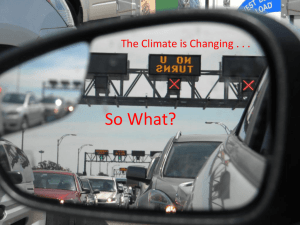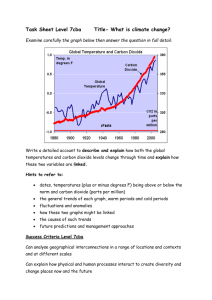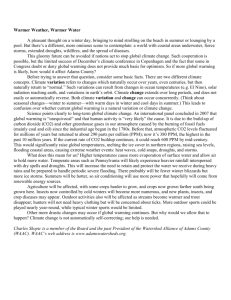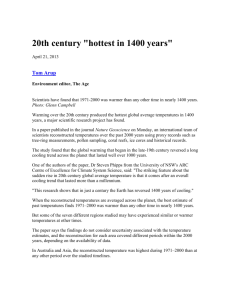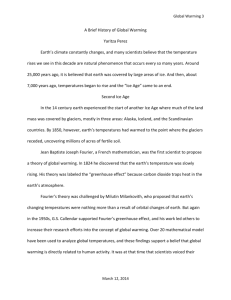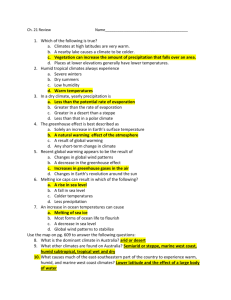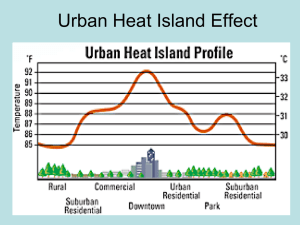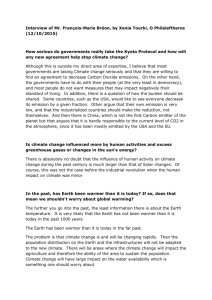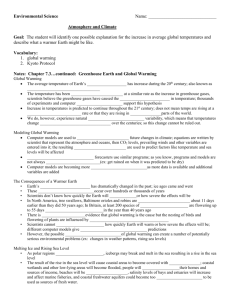Fluctuations
advertisement
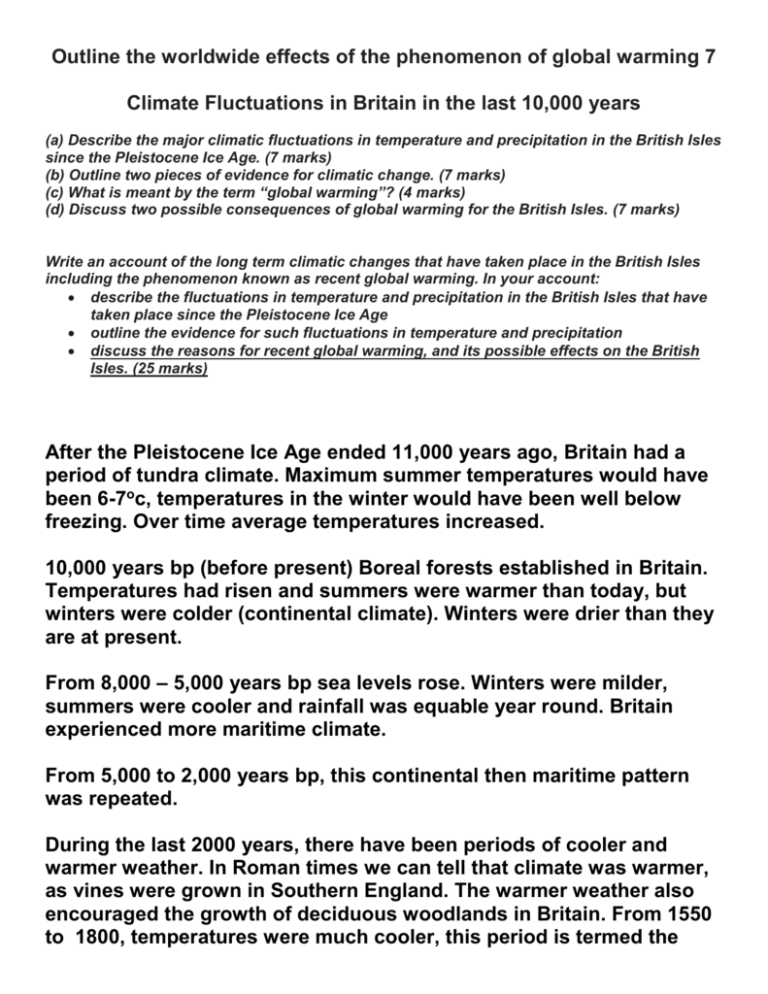
Outline the worldwide effects of the phenomenon of global warming 7 Climate Fluctuations in Britain in the last 10,000 years (a) Describe the major climatic fluctuations in temperature and precipitation in the British Isles since the Pleistocene Ice Age. (7 marks) (b) Outline two pieces of evidence for climatic change. (7 marks) (c) What is meant by the term “global warming”? (4 marks) (d) Discuss two possible consequences of global warming for the British Isles. (7 marks) Write an account of the long term climatic changes that have taken place in the British Isles including the phenomenon known as recent global warming. In your account: describe the fluctuations in temperature and precipitation in the British Isles that have taken place since the Pleistocene Ice Age outline the evidence for such fluctuations in temperature and precipitation discuss the reasons for recent global warming, and its possible effects on the British Isles. (25 marks) After the Pleistocene Ice Age ended 11,000 years ago, Britain had a period of tundra climate. Maximum summer temperatures would have been 6-7oc, temperatures in the winter would have been well below freezing. Over time average temperatures increased. 10,000 years bp (before present) Boreal forests established in Britain. Temperatures had risen and summers were warmer than today, but winters were colder (continental climate). Winters were drier than they are at present. From 8,000 – 5,000 years bp sea levels rose. Winters were milder, summers were cooler and rainfall was equable year round. Britain experienced more maritime climate. From 5,000 to 2,000 years bp, this continental then maritime pattern was repeated. During the last 2000 years, there have been periods of cooler and warmer weather. In Roman times we can tell that climate was warmer, as vines were grown in Southern England. The warmer weather also encouraged the growth of deciduous woodlands in Britain. From 1550 to 1800, temperatures were much cooler, this period is termed the ‘Little Ice Age’. The River Thames froze and weather was much stormier. Many storms affected the east coast of England Global Warming is now thought to be causing temperatures to rise and precipitation levels to increase.
